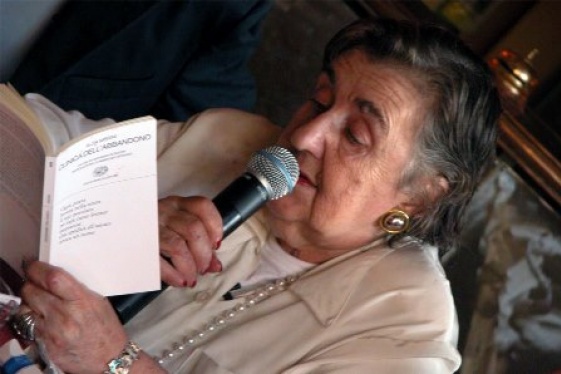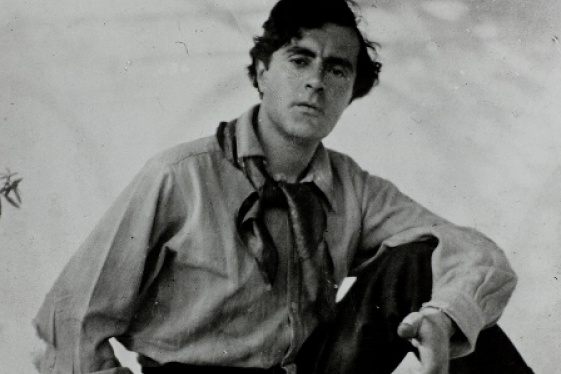

WTI Magazine #38 2014 July, 9
Author : Giuseppina Salzano e Giovanni Verde Translation by:
This story would deserve a very much greater fame, either worldwide and at home. Her name does not generate great memories, few people recalls her name. But the story of this woman should be taught in every school: it is a story that should be known as an Italian pride, a credit that above all is a symbol of the Italian conception of culture as a bastion of the fight against all forms of discrimination. It is the story of Elena Lucrezia Cornaro, the first woman to graduate in history.
Elena Lucrezia is born in Venice in 1646 from an illustrious family of noble origins.
Her father, Giovanni Battista, is St. Mark's Procurator: at that time, in the city, second only to the Doge. Having married a common people's woman, he hasn't been able to enroll his children in the Golden Book of the nobility, an institution that would allow them to enter the city major council. So Giovanni Battista buys the nobility titles for his sons, and asks his daughter Elena Lucrezia, at a young age already highly educated, to achieve the most coveted study title, to give shine and honor to the family.
Elena Lucrezia at only 22 years already knows Greek, Latin, French, Spanish, English, in addition to having deep knowledge of mathematics and philosophy. Her love of knowledge is genuine, pure, authentic.
Elena does not care about titles and awards. She decides to accept the request of her father and subscribe to the University of Padua, for a degree in Theology. The extraordinary dedication to the study will undermine even her physical condition.
Meanwhile, Elena decides to also taking classes to learn Hebrew by the Rabbi of Venice. The fame of the young woman, her exceptional culture, her tenacity in the studies spread outside the borders of the Serenissima, the Venice Republic. Very important cultural personalities and scholars from all over Europe are fascinated by her, and come to Venice just to visit and know her.
A famous physician of the time, Théodore de Mayerne, asks the writer Gregorio Leti to enter the story of Elena in his work "L'Italia regnante" (Italy reigning), a collection of biographies of Italian excellence, published in 1675.
Elena will compile the application for admission to the degree in Theology. The Deans of the University will welcome the request without difficulty, ordering the academic discussion and preparing the minutes of the revolutionary conferral of a degree in Theology to a woman.
When everything seems ready, Gregorio Barbarigo, Bishop of Padua and Cardinal, whose consent is crucial for anyone who wants to major in Theology, rejects Elena's request. The doctrine of teaching of Catholic church is very strict: the masters can only be capable and well-prepared personalities. Gregorio, convinced of the inferiority of women, believes that Elena is not capable of deep reflection; so, he motivates its decision referring to the Holy Scriptures and the impossibility of teaching of Theology by a woman, according to the Letters of St. Paul. The Cardinal will keep on saying that granting a degree to a woman would make the University "ridiculous in front of the whole world".
A long conflict between Giovanni Battista Cornaro and the Cardinal Barbarigo starts at this point, and will end only with a very suffered compromise: Elena will get a degree in Philosophy, not in Theology.
The event is historic. The College Hall is filled to its best capacity, so much that they decide to move the dissertation in the nearby cathedral. Witnesses will later say that on June 25, 1678, there will be more than 30 thousand people attending at Elena's discussion.
Her health, long consumed by the hard life of study and prayer, will surrender soon after. Elena Lucrezia Cornaro will die on July 26, 1684, only 38 years old.
Celebrated by the entire world in life, she will not enough remembered after her death. A glory of Italy, a personality who has definitively been a great precursor of the gender equality struggles, that found in her unconditional love for culture her actual way of life and, before all, the instrument to testify the greatness of the intelligence of women.
You may be interested
-
Great Italians of the Past: A Christmas Eve...
Did you know that Christmas isn’t just a day but it’s a frame of mind?! And it’s to celebr...
-
Great Italians of the Past: Adriano Olivetti
WTI Magazine #79 2016 May 13Author : Giovanni Verde Translation by: An extr...
-
Great Italians of the Past: Alda Merini
WTI Magazine #61 2015 May, 29Author : Giovanni Verde Translation by: A torment...
-
Great Italians of the Past: Alessandro Volta
WTI Magazine #85 2016 November 21Author : Giovanni Verde Translation by: Th...
-
Great Italians of the Past: Altiero Spinelli
WTI Magazine #74 2015 December 11Author : Giovanni Verde Translation by: Th...
-
Great Italians of the Past: Amedeo Modigliani
WTI Magazine #67 2015 September, 4Author : Giovanni Verde Translation by: S...
-
Great Italians of the past: Amerigo Vespucci
Despite being less "famous" than Christopher Columbus, Amerigo Vespucci is the Italian who...
-
Great Italians of the past: Anna Magnani
Anna Magnani was the anti-diva par excellence, the female icon of the neorealism. Among th...










